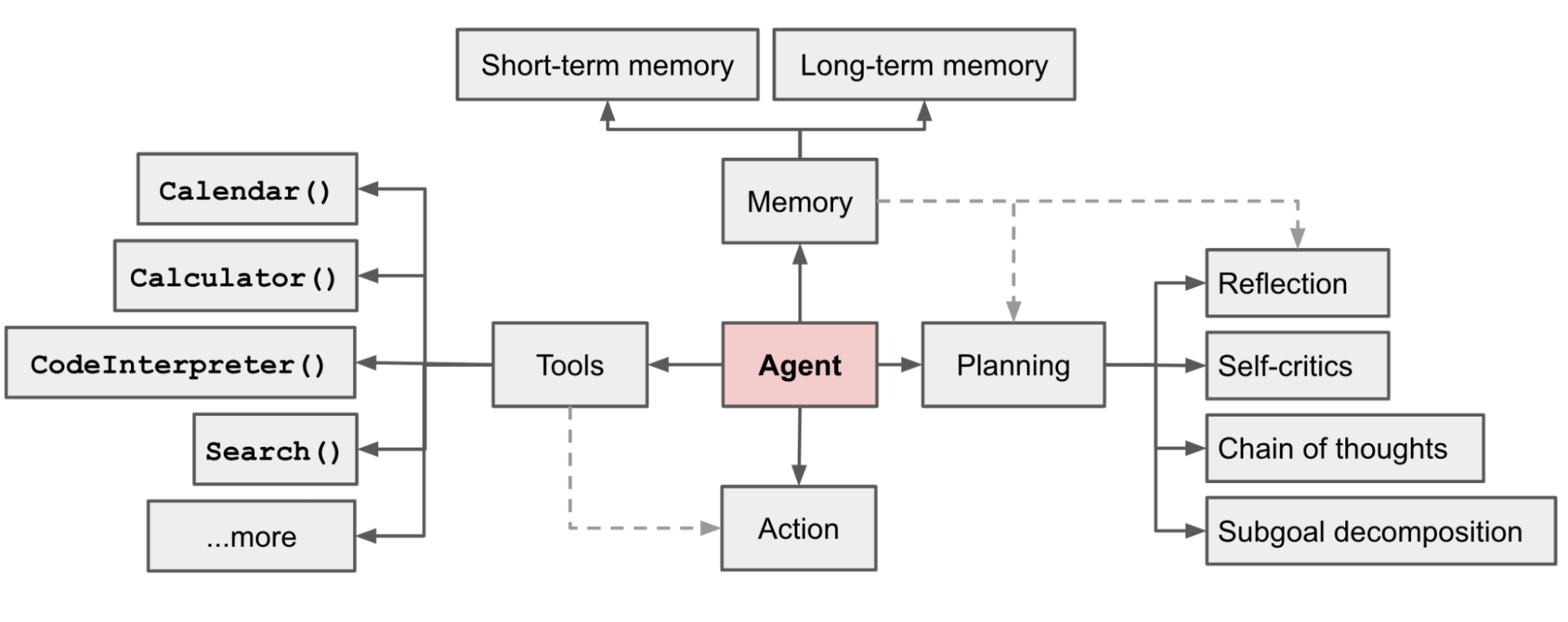
Imagine if customer service was always available, no waiting, and each interaction felt personal. That's the promise of intelligent virtual agents. These digital helpers are changing how businesses talk to their customers, mixing efficiency with a touch of empathy. A recent study says 85% of customer interactions might not need humans by 2025, showing how fast this tech is catching on. In this article, we'll explore the interesting world of these virtual agents, looking at their benefits, real-world uses, and the tech that makes them tick. Whether you're a business leader wanting to boost customer experience or just curious about AI's future, this guide will help you understand how these agents are changing customer service. Let's get started!
Summary: This article describes intelligent virtual agents, covering their key benefits, practical applications, technical aspects, and future trends. It also includes a FAQ section to address common queries about intelligent virtual agents.
Understanding Intelligent Virtual Agents
Core Concepts of Intelligent Virtual Agents
Intelligent Virtual Agents (IVAs) are like digital helpers powered by AI. They're designed to interact with users through text or voice, providing a human-like conversational experience. They utilize advanced technologies such as Natural Language Processing (NLP), Machine Learning (ML), and Contextual Awareness to comprehend user input and respond intelligently. Unlike basic chatbots that adhere to scripted responses, IVAs are capable of managing more complex interactions, discerning user intent, and even detecting emotions.
Here's a breakdown of how they work:
- Natural Language Processing (NLP): Enables IVAs to understand the meaning behind user input, beyond mere words.
- Machine Learning (ML): Allows IVAs to improve over time by learning from previous interactions.
- Conversational AI: Maintains the flow of conversation, remembers user preferences, and handles extended dialogues.
- Robotic Process Automation (RPA): Manages background tasks efficiently.
- Large Language Models (LLMs): Enhance the naturalness of conversations.
- Sentiment Analysis: Assesses user emotions to tailor responses appropriately.
IVAs are deployed across websites, apps, and messaging platforms, streamlining customer support and engagement across numerous industries.
Evolution of Intelligent Virtual Agents
Virtual agents have significantly evolved from their inception. Initially, they were basic systems like Interactive Voice Response (IVR), which directed calls through menu options but lacked the ability to handle complex interactions. Today, intelligent virtual agents have advanced considerably. They've transcended basic chatbots and IVRs by leveraging AI to understand natural language, context, and emotions, resulting in more dynamic and personalized conversations.
With machine learning, IVAs continually enhance their response accuracy based on historical interactions, leading to increased user satisfaction over time. Developments in large language models have empowered them to grasp context deeply and respond in a manner that is both human-like and contextually aware. In customer service and contact centers, IVAs handle routine tasks, allowing human agents to focus on more intricate issues, thereby boosting efficiency and enhancing the customer experience.

Prominent examples of modern IVAs include Emma from the US Citizenship and Immigration Service, Erica from Bank of America, and TOBi from Vodafone. These agents cater to millions, managing countless inquiries. Personal assistants like Siri, Alexa, and Google Assistant, integrated into consumer devices, perform tasks such as setting reminders and controlling smart homes using conversational AI. IVAs are widely adopted in sectors like ecommerce, healthcare, banking, telecommunications, manufacturing, and government due to their ability to automate support, increase efficiency, and improve user engagement.
IVAs are becoming integral to customer service, healthcare, and beyond, with promising innovations and applications on the horizon.
Key Benefits of Intelligent Virtual Agents
Enhanced Customer Experience with Intelligent Virtual Agents
Intelligent Virtual Agents (IVAs) are revolutionizing customer interactions by delivering more personalized experiences. By leveraging customer data—such as purchase history and location—IVAs offer tailored solutions from the outset. This personalization can enhance customer satisfaction by 20% and increase sales by up to 15%.
Equipped with advanced natural language understanding (NLU) and natural language processing (NLP), IVAs comprehend customer intent across various channels, languages, and dialects. This capability ensures that conversations feel more human and empathetic, making customers feel genuinely understood.
Hyper-Personalization and Proactive Engagement with IVAs
A significant advantage of IVAs is their ability to hyper-personalize interactions. By analyzing real-time behavior, preferences, and even emotions, they can anticipate customer needs and address issues before they arise. This proactive engagement fosters stronger customer relationships.

Moreover, IVAs seamlessly switch languages, enhancing accessibility for a global audience. Their rapid, AI-driven responses reduce wait times, enabling customers to self-serve and receive immediate support. This efficiency improves issue resolution times and overall customer experience. Telecom companies and services like the US Citizenship and Immigration Service's virtual assistant 'Emma' exemplify the effective handling of inquiries by IVAs.
Boosting Operational Efficiency with Intelligent Virtual Agents
IVAs significantly enhance operational efficiency and reduce costs by managing routine inquiries for numerous customers simultaneously. This alleviates the burden on live agents, increasing their efficiency and lowering operational expenses.
By automating common tasks, IVAs accelerate digital transformation in call centers, resulting in shorter wait and resolution times. They access company databases and CRMs to provide accurate responses, minimizing the need for human intervention.
Cost-Effective Resource Utilization with IVAs
AI-powered analytics enable IVAs to learn and improve continuously, enhancing their speed and effectiveness. This intelligent resource utilization translates to cost savings for businesses. IVAs handle more customer interactions without additional staffing, offering operational flexibility and reducing costs by 40% to 60% through automation.

Furthermore, IVAs decrease training and retention costs by addressing high-volume queries, freeing agents from repetitive tasks.
24/7 Availability and Omnichannel Support with Intelligent Virtual Agents
IVAs provide round-the-clock support, ensuring customers receive assistance at any time, including nights, weekends, and holidays. This 24/7 availability enhances customer satisfaction and engagement.
IVAs operate seamlessly across multiple channels—such as websites, social media, call menus, and messaging apps—delivering a cohesive experience. Omnichannel support ensures interactions are context-aware and personalized, simplifying the customer journey when switching channels.
Consistent Global Support with Intelligent Virtual Agents
Constant availability with consistent messaging allows businesses to maintain quality and responsiveness worldwide, accommodating different time zones and preferences. This continuous support is vital for industries requiring uninterrupted service, such as e-commerce, telecommunications, healthcare, and utilities.
IVAs also manage multilingual communication, understanding slang and colloquialisms, which broadens accessibility and boosts engagement.
LivePerson and Nuance provide virtual agents that integrate with existing systems, while IBM Watson and Amelia by IPsoft offer scalable solutions. Platforms like Bold360 by LogMeIn and Microsoft’s Azure Bot Service deliver robust omnichannel capabilities, ensuring businesses can connect with customers wherever they are.
Practical Applications and Use Cases of Intelligent Virtual Agents
CRM Integration and Knowledge Base Utilization
Intelligent virtual agents (IVAs) have become integral to Customer Relationship Management (CRM) systems, providing round-the-clock support. They efficiently manage routine inquiries, allowing human agents to focus on more complex issues.
For instance, consider Bank of America’s Erica. Integrated with customer databases and transaction systems, Erica offers personalized financial advice and identifies potential fraud. This enhances digital interactions and reduces call center pressure. Erica has managed over a billion interactions, providing assistance through both voice and text.

Government services are also leveraging these technologies. Virtual assistants like Singapore’s Ask Jamie access public service knowledge bases, handling inquiries in multiple languages. This reduces call center traffic and accelerates response times. Such integrations ensure that virtual agents remain updated with the latest information, enabling them to answer questions or resolve issues effectively.
Sector-Specific Intelligent Virtual Agent Applications
IVAs are transforming various sectors with solutions tailored to specific needs:
-
Healthcare: They assist in scheduling appointments, reminding patients about medications, supporting consultations, and even analyzing medical images. This personalization can enhance patient outcomes. AI in healthcare analyzes patient data and medical images, aiding doctors in diagnosis and treatment, thereby improving care quality.
-
Customer Service: IVAs manage routine inquiries, troubleshoot issues, and enhance user experience by providing prompt support. AI assistants like Siri, Alexa, and Google Assistant offer real-time assistance.
-
Finance: AI agents monitor transaction patterns to detect fraud, enhancing security and efficiency.
-
Public Sector: Intelligent agents automate tasks and provide multilingual support, modernizing services. Singapore’s Ask Jamie is a prime example.
-
Automotive: Autonomous vehicles employ intelligent agents to process sensor data in real-time, aiding in navigation, decision-making, and safety on challenging roads.
Smart Human Handoff in Virtual Agents
A standout feature of intelligent virtual agents is their capability for smart human handoffs. While they autonomously handle routine tasks, they can escalate complex or sensitive issues to human agents, ensuring quality service.

In customer service, AI assistants alleviate the burden on human agents by addressing common queries, while ensuring that intricate problems receive human attention. These handoff systems blend AI efficiency with human empathy and judgment when necessary.
For example, Bank of America’s Erica addresses millions of routine financial queries but escalates challenging ones to human representatives for personalized assistance. Platforms like LivePerson and Intercom facilitate this intelligent handoff, enabling businesses to maintain high service levels while benefiting from automation. By combining the strengths of IVAs and human agents, organizations can deliver support that is both efficient and empathetic.
Explore these smart uses of intelligent virtual agents in different areas through Bank of America’s Erica, Singapore’s Ask Jamie, and LivePerson.
Technical Aspects of Intelligent Virtual Agents
How Intelligent Virtual Agents Operate
Intelligent Virtual Agents (IVAs) are like smart digital helpers powered by AI. They use Natural Language Processing (NLP) and Machine Learning (ML) to chat with you in a way that feels personal and natural. Unlike regular chatbots that just follow keywords, these agents can handle more complicated tasks and respond in a human-like way.
With NLP, IVAs can break down what you say into grammar, structure, and meaning, so they get what you're really asking. They use Natural Language Understanding (NLU) to further grasp what you need and give you answers similar to what a live person would say.
Machine Learning helps IVAs get better over time. They learn from each interaction, spotting patterns and improving how they understand and respond. Thanks to deep learning, they can deal with typos and slang, making their responses sound even more natural. AI lets these agents process info, make decisions, and reply based on what’s happening in the chat and what they know.

IVAs can keep track of past chats, so they remember what you've talked about before. This allows for ongoing conversations and more tailored help. They can link up with systems like CRM, billing, and IT services to do things like check account balances or troubleshoot issues.
Advanced IVAs can:
- Talk in multiple languages
- Analyze how you're feeling
- Verify your identity with your voice
They work across various platforms like voice, chat, SMS, and social media. If things get too tricky, they can pass you on to a human agent, keeping the conversation going smoothly.
Ensuring Security and Data Privacy in Intelligent Virtual Agents
IVAs often handle sensitive customer data, so keeping that data private and secure is super important. They need to follow rules like GDPR and CCPA to ensure data is handled safely. This means encrypting data when it's stored and sent, using secure ways to communicate, and only keeping data as long as necessary. It's crucial to be clear about how data is used, so users know what's being collected and stored.
Businesses using IVAs should have strong security measures in place. This includes:
- Secure API connections
- Making data anonymous
- Regular checks to prevent unauthorized access
Voice authentication and secure access controls add extra layers of protection for customer identities. It's important to have human oversight to keep an eye on how the AI behaves and make sure privacy policies are followed, especially when dealing with sensitive info or handing things over to human agents.
For more information, you can explore the following resources:
Future Trends and Adoption of Intelligent Virtual Agents
Emerging Trends in Intelligent Virtual Agent Technology
Intelligent Virtual Agents (IVAs) are rapidly evolving due to advancements in artificial intelligence. By 2025, it is anticipated that 85% of businesses will utilize AI agents, underscoring their significance in enhancing efficiency, reducing costs, and improving customer interactions. The market for AI agents is projected to soar from $3.7 billion in 2023 to an impressive $150 billion by 2025, driven by innovations in cloud-based AI, IoT devices, and automation technologies. AI Agent Statistics.
IVAs are advancing beyond simple chatbots, now leveraging natural language processing, machine learning, and deep neural networks. These technologies enable them to comprehend complex inquiries, provide personalized advice, and even anticipate customer needs.

Retail Today. With large language models, virtual agents can mimic human conversations, manage intricate dialogues, and seamlessly transition context to human agents, enhancing the personalization and empathy of customer experiences. Genesys.
Looking forward, agentic AI represents the next major leap. It empowers IVAs to handle complex, multistep tasks and make real-time decisions. This technology coordinates multiple AI agents to deliver integrated solutions, such as dynamically tracking and rerouting package deliveries while keeping customers informed. Genesys.
Overcoming Adoption Challenges in Intelligent Virtual Agents
Despite these exciting advancements, over 30% of companies may encounter challenges in adopting AI technologies, primarily due to integration complexities and change management issues. Blackthorns Design. Integrating IVAs with existing enterprise tools and workflows is challenging and requires ongoing learning and refinement to be effective.
In sectors like retail, consumer adoption is accelerating. However, businesses must still address privacy concerns, build customer trust, and facilitate smooth transitions between virtual and human agents. Retail Today. To tackle these challenges, companies are shifting from basic chatbots to advanced virtual agents powered by large language models, enabling more natural and empathetic customer interactions. Genesys.
Proactive AI solutions, such as agentic AI, can ease adoption by adapting in real-time to customer needs, delivering greater value and minimizing friction in customer service processes. Genesys. For instance, a retail company might initially face integration hurdles and customer skepticism, but by employing an agentic AI-powered assistant, they can significantly enhance customer satisfaction through personalized and proactive support.
FAQ Section
How Intelligent Virtual Agents Enhance Customer Satisfaction
Intelligent Virtual Agents (IVAs) enhance customer satisfaction by delivering personalized, human-like responses to inquiries. They leverage advanced technologies such as natural language processing (NLP), machine learning (ML), and contextual awareness to comprehend user intent and recall past interactions. This results in more accurate and relevant assistance, smoothing interactions and making them more engaging.
IVAs also employ sentiment analysis to detect customer emotions, allowing them to adjust responses or escalate issues to human agents when necessary. This capability helps alleviate frustrations and boosts customer satisfaction.

IVAs excel in handling routine and repetitive tasks, freeing human agents to address more complex issues. This division of labor leads to faster resolutions and improved service quality. They operate across various platforms—websites, mobile apps, and messaging systems—ensuring seamless and interactive customer experiences anytime, anywhere. For instance, a retail company implemented an IVA with NLP and sentiment analysis, achieving a 30% increase in customer satisfaction scores due to quicker, more personalized support.
Challenges in Implementing Intelligent Virtual Agents
Implementing virtual agents presents several challenges:
- Integration: Seamlessly integrating IVAs with existing business systems and knowledge bases requires careful planning to ensure smooth data flow and accurate responses.
- Understanding Intents: Ensuring the IVA accurately understands diverse customer intents and contexts demands advanced NLP and continuous training, which can be resource-intensive.
- Privacy and Security: Maintaining customer privacy and data security is crucial, as IVAs handle sensitive information during interactions.
- Balancing Automation and Human Touch: IVAs must discern when to escalate complex or emotional issues to human agents to prevent customer dissatisfaction.
- Customer Preferences: Some customers may prefer human interaction and find IVAs impersonal or frustrating if the technology is not sufficiently advanced.
For example, a financial services company faced challenges training their IVA to interpret complex queries accurately, leading to initial customer frustration. They addressed this by enhancing the IVA with machine learning.
Integrating Intelligent Virtual Agents with CRM Systems
IVAs integrate seamlessly with CRM systems to access customer history, preferences, and past interactions, enabling them to provide personalized and context-aware responses. Through integration, IVAs can update CRM records in real-time, logging interactions to improve data accuracy and assist human agents during follow-ups.
Typically, APIs and middleware connect IVAs with CRM platforms, facilitating data exchange and smooth workflows. This configuration supports automating routine tasks such as ticket creation, appointment scheduling, and order status updates directly within the CRM. Ensuring data privacy compliance and secure authentication between the IVA and CRM systems is essential for protecting sensitive customer information.
A telecommunications company successfully integrated their IVA with Salesforce CRM, allowing the IVA to access customer account details and update service tickets automatically, reducing resolution times and enhancing customer experience.
By addressing these challenges and leveraging the integration capabilities of IVAs, businesses can enhance operational efficiency and deliver a more cohesive customer service experience. This strategy not only boosts customer satisfaction but also contributes to increased sales revenue and customer loyalty.